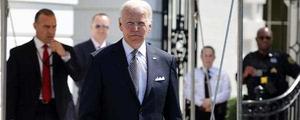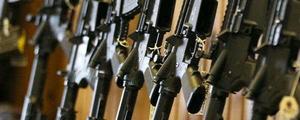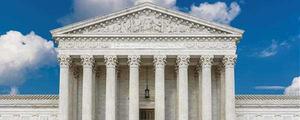Story Highlights
- 67% of Americans, up from 52%, say gas prices causing financial hardship
- Majorities also report driving less (62%) and altering summer plans (55%)
- Economic confidence now the worst since 2007-2009 recession
WASHINGTON, D.C. -- Two-thirds of Americans say recent increases in the price of gas are causing them hardship, which is up from 52% feeling this financial pinch in April. Although more Americans say they are experiencing "moderate" rather than "severe" hardship, the percentage describing the hardship as severe has risen from 14% to 22%.
The latest results are based on a June 1-20 Gallup survey. The 67% experiencing hardship is among the highest levels Gallup has found when asking this question at other times of rising gas prices since 2000. The last time it was at this level was in May 2011.
Americans' reaction to gas prices reflects the relatively sharp increase in pump prices this year, rising by nearly a dollar a gallon in recent months and now averaging close to $5.00 per gallon nationally. Americans were paying just over $2.00 a gallon, on average, at the start of 2021.
Experiencing hardship due to gas prices is, naturally, strongly related to household income.
- Eight in 10 adults in lower-income households -- those earning less than $40,000 per year -- say the rise in gas prices has caused them financial hardship, with 40% saying it has been severe.
- Nearly as many households making between $40,000 and $99,999 -- 73% -- report a hardship, although just 20% say it has been severe.
- Half of households earning $100,000 or more report a hardship due to gas prices, with 12% calling it severe.
Majorities Say Summer Driving and Vacations Being Affected
More than six in 10 Americans say the price of gas has caused them to drive less this summer than they might have otherwise. This exceeds the percentages reporting they were curtailing their driving at other times of high gas prices, including in 2000, 2001, 2004, 2005 and 2018. Gallup did not ask this question during the period of high gas prices in 2008.
Fifty-five percent of Americans also say the price of gas is causing them to alter their summer vacation plans. The one time Gallup asked this previously, in May 2005, 46% reported altering their plans. At the same time, slightly fewer than now, 59%, said rising gas prices were causing financial hardship.
Gallup Economic Confidence Index Now Lowest Since 2009
As gas prices have become more burdensome for Americans, their view of the U.S. economy has continued to dim, as indicated by Gallup's Economic Confidence Index (ECI). The index, which is a summary of Americans' ratings of current economic conditions and outlook for the economy, has sunk 13 points over the past month to -58. The index has a theoretical range from +100 if all respondents describe the economy in positive terms and think it's improving to -100 if all describe it in negative terms and think it's worsening.
Today's -58 ECI score represents a substantially negative skew in public opinion about the economy and is the lowest measured since a -64 reading in February 2009. At the time, the country was still embroiled in the 2007-2009 recession and confidence was starting to recover after hitting the all-time low of -72 in October 2008.
The latest drop in Gallup's ECI score reflects harsher assessments of the economy on both aspects of the index:
- The percentage of Americans calling current conditions "poor" has risen eight percentage points in June to 54% -- the first time a majority has called conditions poor since 2009. Just 11% say conditions are "good" and 34% "only fair." Less than 1% describe them as "excellent."
- A striking 85% in June say the economy is getting worse, up from 77% in May and only two points shy of the record high on this, from June 2008.
Perceptions of Nation's Most Important Problem Are Steady
Currently, 40% of U.S. adults mention some aspect of the economy when asked to name the country's chief problem, including 18% mentioning the high cost of living or inflation and 5% citing gas prices explicitly. Another 13% say the economy in general is the top problem, and 1% say it's the "recession" among a handful of other aspects of the economy mentioned by no more than 1% for each.
A unique aspect of Americans' current attitudes about the nation is that their top-of-mind mentions of the economy are not nearly as high as would be expected from their explicit ratings that compose the ECI.
While up sharply from 23% a year ago and 19% in June 2020, current net economic mentions are far below the 70% and higher level seen in 2008 and 2009, when economic confidence was similar to or just slightly worse than today. Fewer name economic problems today than did so between 2010 and 2014, when economic confidence was significantly better than it is now.
The top-named noneconomic problem is the government, cited by 18% of Americans, which ties with inflation as the top-named specific problem overall. The government has consistently ranked among the top two mentions since 2016.
Eight percent this month, up from 1% in May, mention guns or gun control as the most important problem facing the country, reflecting Americans' focus on the issue in the aftermath of mass shootings in Buffalo, New York, and Uvalde, Texas. This is the highest percentage mentioning guns since August 2019, after back-to-back mass shootings in El Paso, Texas, and Dayton, Ohio.
Another 2% this month mention school shootings, bringing overall concern about gun violence to 10%. That is close to the record-high 13% recorded in March 2018, following the Parkland, Florida, high school shooting.
Other noneconomic issues mentioned by at least 3% of Americans include crime (6%), immigration (5%), lack of unity in the country (5%), ethical/moral decline (4%), race relations (3%) and poverty/homelessness (3%).
To stay up to date with the latest Gallup News insights and updates, follow us on Twitter.
Learn more about how the Gallup Poll Social Series works.



